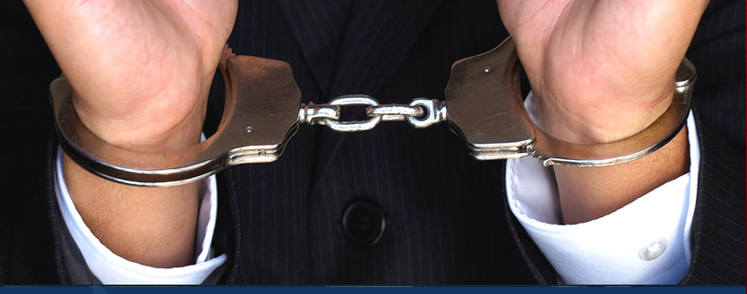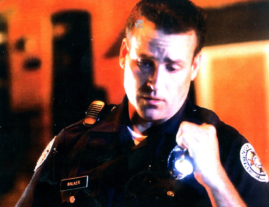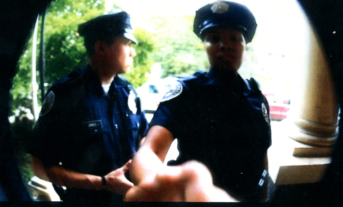You should never give a statement to the police. Many individuals erroneously believe that talking with the police can help them in some way. Nothing can be further from the truth. There is a very fascinating, in-depth analysis by a Harvard professor analyzing the various angles of why it is never advisable to speak to the police. The youtube videos can be seen here:
- Part 1: http://www.youtube.com/watch?v=i8z7NC5sgik
- Part 2: http://www.youtube.com/watch?v=08fZQWjDVKE
Police are good at what they do. Usually, when trying to question a suspect, they are nice. It is similar to a car salesman. They generally are nice because they will make money if you buy a car. Similarly, a police officer is graded and his performance assessed by the proficiency of his job. One of these aspects is gaining useful information from an individual that can be used against them later at court.
People often think they can talk their way out of being charged, arrested, convicted, etc. This is the absolute wrong mentality to have. Let your attorney do the talking. When answering questions by the police, a seemingly benign statement like “I went over to my friend’s house” will be written to something similar as “Suspect admitted to entering the premises.” Moreover, that could be a legal element that must be proven (depends on the specific charge) that you may have just given them that they may not have already had.
I had a client once that was accused of sexual assault. It was a “statutory” rape case where consent was NOT the issue, only whether or not the two individuals did engage in sexual conduct. Their ages were close, but he was indeed one year above what the statute requires for an individual to consent.
The family came to me because a detective wanted to question them. They wanted an attorney, but they also wanted to tell his side of the story – basically…in his words…”she wanted it.” I explained to them if they go and give a statement, and he says anything in close proximity to what he told me, he would have essentially have given a complete confession. This was beyond their comprehension. Regardless, a warrant was going to be issued with a very high bond amount to be posted if he wanted to secure his release from jail.
My advice, obviously, was to NOT talk to the detective. I explained that regardless, he would be arrested, we needed to work on hopefully securing his release on bail, but giving any statement would be a very bad idea. The family did not like this advice. They felt that if they went in, and they merely explained the situation, and how it was consensual – that would be the end of it.
This family ended up not employing my services after this advice and his arrest for the charge of sexual assault. They felt that had they just gone and given the information the detective was seeking, he would never have been charged or arrested.
I usually follow cases that I am involved with, even in cases where individuals employ the services of other attorneys. I saw about two months after my involvement ended, I saw that the case had been dismissed. I saw the attorney who worked on the case, and I had to know what happened. I assumed after they assumed my legal advice was bad, they then went and gave a statement (or his version of the story). I asked the attorney what led to the dismissal – and he remarked because they had zero evidence that the two engaged in any type of sexual relations. Hence, his case was dismissed because I gave them sound legal advice very early on. Had I not, he surely would have been convicted of a very serious felony crime. This exemplifies why it is NEVER advantageous to speak to the police, ESPECIALLY if they are applying pressure for a meeting to discuss the alleged facts of a possible criminal incident.
Another case situation of mine that typifies why this advice is correct. I had a client who employed our services for a DWI charge. After speaking with me, and hearing exactly what to do when arrested for DWI (Including and especially what to do when you think you are under investigation for a DWI) – he knew the score of what to do. It didn’t help him for the case he hired me on, but – although almost everyone believes they will never be arrested again for a criminal charge, often this is not the case. Some months down the road this individual was arrested for a DWI again (while the previous one was pending).
The facts were he was driving his vehicle home, and somehow he ran into a ditch. He climbed out of his car and began to walk home, as he lived only a few miles away. Someone saw what happened, and called the police. An officer was dispatched to the scene and immediately began to question my client. Because he knew how to handle such a situation, he handled the situation in expert fashion.
When the officer questioned him, he told him that he had not been driving, his brother had been. When asked where his brother was, he told them at their house where they both lived. The officer prodded further and said if he was the driver, tell us where you live, so we can question him. My client replied he would never intentionally give information that may lead to hi brother being charged with a crime, and so politely declined. The person who called in identified the person driving with similar attributes as my client. In response to this, he said: “I could see how one would think that, as we look very similar.” Befuddled and angry, the officer did still arrest my client for a charge of DWI (it should be noted this was going to occur regardless).
At the station after being booked, the officer kept coming up to my client asking for details and tried to nicely and smoothly get him to admit to driving the vehicle. Because he knew the protocol after speaking with me, he knew to persist in his answer. Even though he was charged with a DWI offense, in this instance he was not able to be convicted – because the state could not legally prove that he was the “operator” of the motor vehicle. The charge was eventually dismissed – all because he declined to cooperatively answer the officer’s questions that were being asked in order to help secure a conviction.
This is another example of why it is never advantageous to speak with the police. As a general rule, one should say nothing. However, in this instance, he did engage in dialogue with the police but did so with the knowledge of avoiding answering questions he knew were posed in order to help convict him of DWI.
Hence, NEVER GIVE STATEMENTS TO THE POLICE!






















